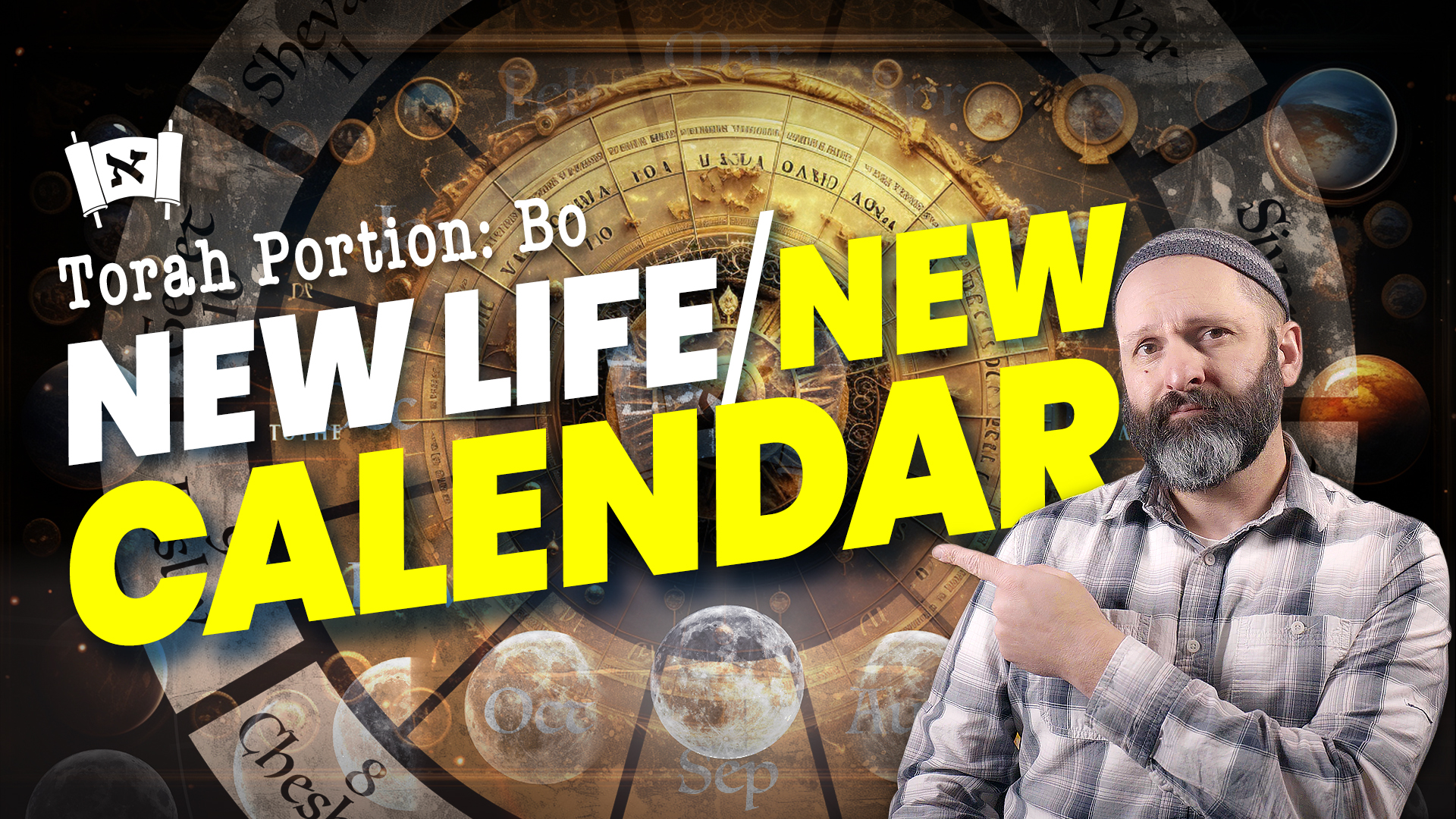Radical New Beginnings
Series:

Parashat Bo (Exodus 10:1-13:16)
When the God of the Universe gives someone a new beginning, it is a radical one. Our prime example is the Children of Israel in our current Torah portion. He dramatically redeems them from Pharaoh and the house of bondage and transforms them from a horde of slaves into a holy nation of purpose. And to seal this transformation He gave the people He redeemed a new calendar to organize their lives by:
The LORD said to Moses and Aaron in the land of Egypt, “This month shall be for you the beginning of months. It shall be the first month of the year for you. (Exodus 12:1–2)
Their redemption was so radical that He wanted them to think of the days of their lives, not according to the seasons, the harvest, or the festivals of the nations around them, but in terms of their transformation. Unlike our secular calendar, every day on this new calendar would point them to a juncture in time where they would re-encounter their Redeemer.
The Children of Israel were redeemed in the Hebrew month of Nisan (also called Aviv, see Exodus 13:4). Nisan is in the spring, corresponding to around March-April. At the time of their redemption, Nisan was the seventh month of their year. The new year began with the fall harvest around September-October. With the redemption from Egypt, however, all religious events were determined by the establishment of this month begin at the head of the religious year. Nisan became the first of the months. Their perspective of time was re-oriented to correspond to their redemption.
Calendars have always been problematic. Because an exact year is not broken down into an exact number of full days (the astronomical year is 365.25 days), there is no easy way to mark time consistently without the use of complex calculations and the insertion of leap years. The biblical calendar is unlike the Roman (i.e. Gregorian) calendar which most of the modern world adheres to today. Whereas our secular calendar is almost completely a solar one, the calendar God gave to His people is primarily a lunar one. One thing that all calendar systems have in common, however, is that they all depend on the heavenly bodies to mark time:
And God said, “Let there be lights in the expanse of the heavens to separate the day from the night. And let them be for signs and for seasons, and for days and years (Genesis 1:14)
In this passage, most translations tell us that the luminaries were created to mark seasons, days, and years. However, the word for “seasons” in this passage is the Hebrew word mo’edim. It literally means “appointed times.” It is the same word used throughout the Hebrew Scriptures for feasts or festivals:
The LORD spoke to Moses, saying, “Speak to the people of Israel and say to them, These are the appointed feasts [mo’edim] of the LORD that you shall proclaim as holy convocations; they are my appointed feasts [mo’edim] … These are the appointed feasts [mo’edim] of the LORD, the holy convocations, which you shall proclaim at the time appointed for them. (Leviticus 23:1–2, 4)
As we can see here, from the very beginning of creation, God established the sun, the moon, and the stars for a purpose. They were to be more than the source of our daylight and daily warmth, more than our night light the manager of our ocean tides, more than beautiful ornaments in the heavens. They were established to be a magnificent time-keeping mechanism by which the story of redemption would be foretold, established, and then relived. They would be used to know when to keep God’s appointed times.
When the God of the Universe transforms us and gives us a new beginning, our lives start over from that point. God took the Children of Israel out of the clutches of Egypt so their days, weeks, and years would no longer be submitted to Pharaoh and his oppression. He brought them out to give them a radical new beginning and a life that would reflect their new status as those delivered from the hand of slavery. Once they were redeemed they traded in their old calendar for a new one. Have you been redeemed? If so, what’s keeping you from swapping out your old calendar for the one you’ve been redeemed for?








